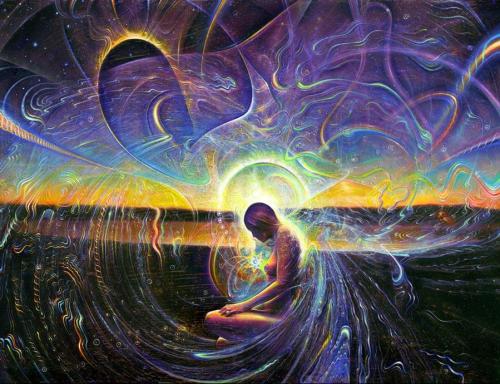 Submitted by Sci Fi Guy on
Submitted by Sci Fi Guy on

Psychiatrist and Harvard professor George Vaillant, MD, has spent his life studying how people change and grow over time. Since 1970, he has held the reins of the Study of Adult Development, which has tracked the life course of more than eight hundred people since 1938. In Spiritual Evolution: A Scientific Defense of Faith, Vaillant weaves together findings and case studies from the Study of Adult Development with neuroscience, evolutionary biology, cultural anthropology, religious studies, and the scientific study of human emotion—with a little poetry and historical analysis sprinkled throughout.
Vaillant joins the growing number of psychologists, psychiatrists, and neuroscientists who are reinstating positive emotions as essential human strivings along with biological and evolutionary bases that are important for the survival, flourishing, and continuing evolution of humanity. Indeed, Vaillant’s premise in Spiritual Evolution is that our capacity for positive emotions—faith, love, hope, joy, forgiveness, compassion, and awe, among them—is in fact what makes us spiritual beings. Spirituality, he says, is a brain-based, evolutionary benefit for our species, stemming from our innate drives toward mating, attachment between parents and infants, and caring for and cooperating with our kin (in food-haring relationships and group kills, for example).
Vaillant separates religion from spirituality on both biological and evolutionary grounds: “Spirituality arises from biology; religion arises from culture.” Although religion is a part of cultural evolution, only to the extent that it serves to cultivate positive emotions does it serve a survival function. Religion is limited or destructive when it veers from this focus. To avoid the negative consequences of religious dogma, Vaillant recommends that a “focus on the positive emotions is the best and safest route to spirituality that we are likely to find.” He says, “Love, like the other positive emotions, is religion without the side effects.” At the same time, Vaillant sees the value in religious ritual: It is “the surest way to pull our positive emotions into conscious reflection.”
Vaillant roots spirituality, which for him is essentially synonymous with positive emotions, firmly in the brain, specifically the limbic system. There are also times when Vaillant refers to spirituality in the more mystical sense of the word, as when in his initial definition of positive emotions he includes “our experience of God as we may understand Him/Her.” He also somewhat sheepishly says near the end, “as soon as I suggest that I know how or why spiritual enlightenment and mystical experiences develop, I have lost my way,” pointing to the inability of science or religion to claim “a proprietary stranglehold on truth.” But pointedly missing throughout the book is reference to elements of spirituality or religion that might extend beyond the positive emotions firmly rooted in the brain.
http://noetic.org/library/book-reviews/spiritual-evolution/
Reviewed by Cassabdra Vieten PhD
- 1080 reads